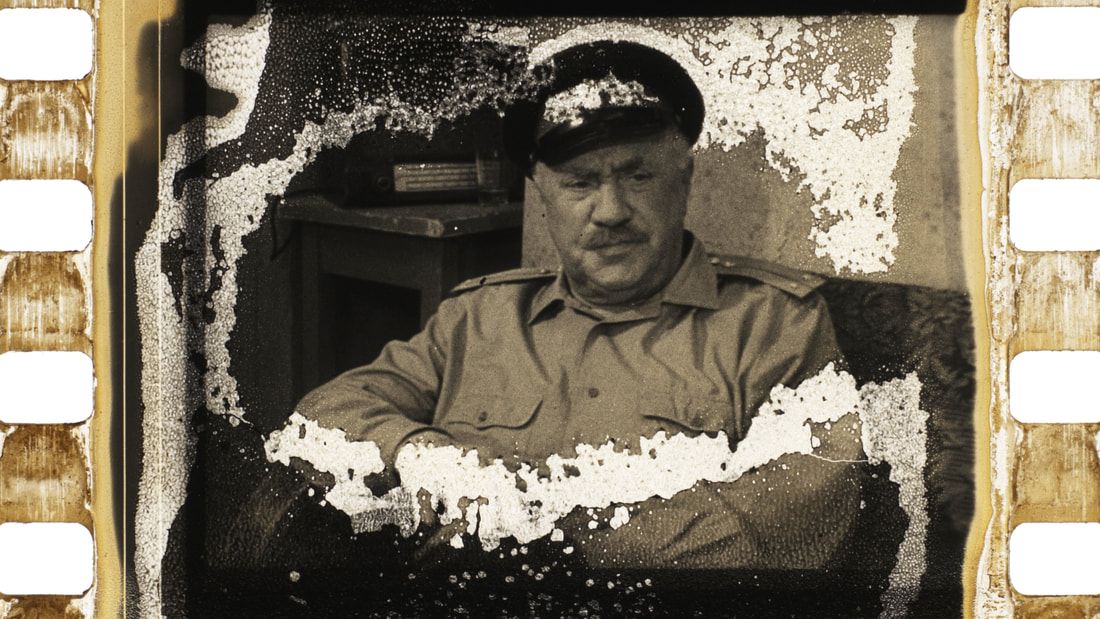|
Review by Sean Boelman
Bill Morrison has made some interesting films exploring the relationship between cinema and the past, and his newest movie, The Village Detective: A Song Cycle, is a strong addition to his filmography. Although the appeal of the film is largely going to be reserved for cinephiles, it’s an interesting experimental documentary.
The film is about a lost Soviet movie from 1969 that was found in an Icelandic fisherman’s net, causing Morrison to set out on an exploration of its lead actor’s legacy. While a more traditional filmmaker would have used talking heads extensively, a majority of the runtime consists of restored footage from the lost film, with subtitles overlaid to tell the story. Without a doubt, the most impressive thing about this movie is that it features so much of this exceptionally restored footage. A few brief clips show the poor condition of the print and the extensive process that had to be done to restore it really put into context what it means to see this film even with its imperfections. That said, the use of subtitles isn’t always the most effective. The font that is used to deliver information to the audience and the font used to communicate the dialogue from the film are the same, and it can sometimes become a bit confusing to distinguish what is what. And furthermore, the font itself isn’t aesthetically pleasing. There’s a monotonous feeling to the movie in that much of it feels the same. Obviously, since the film had been lost for so long and was in such a neglected condition, the restoration was far from complete. There are multiple portions of the footage that are so damaged that one can’t even make out the image in it, and while showing this is an interesting exercise in aestheticism, it isn’t the most captivating. Morrison uses this footage to explore the idea of legacy. The connection between watching this unearthed film and the preservation of the past is obvious, but Morrison doesn’t really say anything about it. Instead, the movie offers a lot of ideas without the commentary to go along with it. Perhaps the biggest shortcoming with the documentary is that it does not go into much depth regarding the greater implications of finding this lost film. There is a lot that isn’t known about Soviet film history because of political and historical reasons that have posed an obvious challenge, and this discovery fills an interesting gap that Morrison should have explored. The Village Detective: A Song Cycle is an interesting watch, even if it is nowhere near as profound as it could have been. For cinephiles looking for a brief glimpse into an obscure bit of film history, this is definitely worth a watch. The Village Detective: A Song Cycle is now in theaters. Rating: 3.5/5
0 Comments
Leave a Reply. |
Archives
July 2024
Authors
All
|
|
|
disappointment media
Dedicated to unique and diverse perspectives on cinema! |

